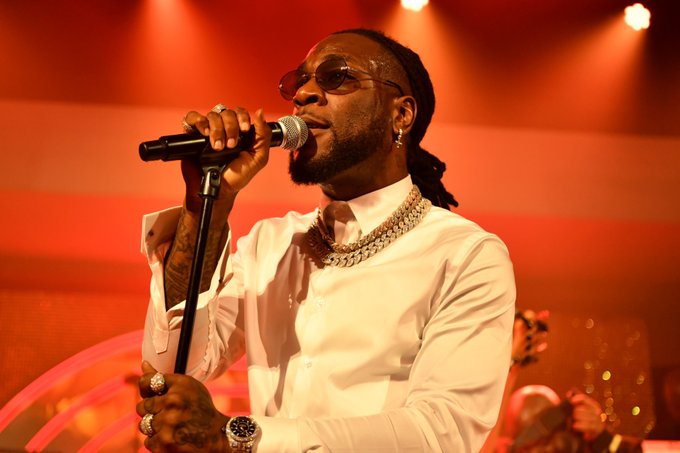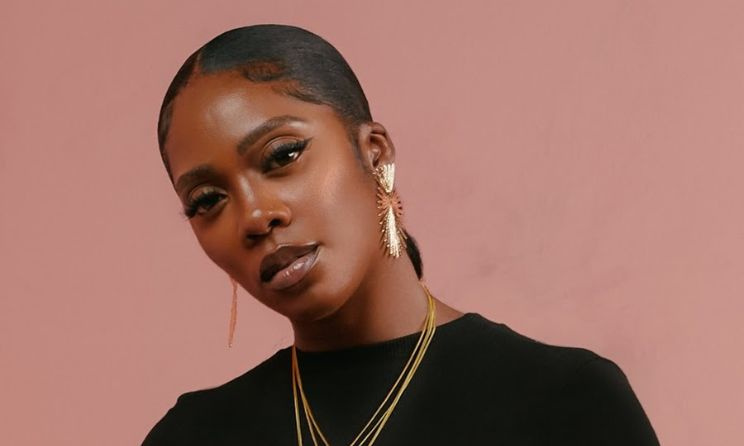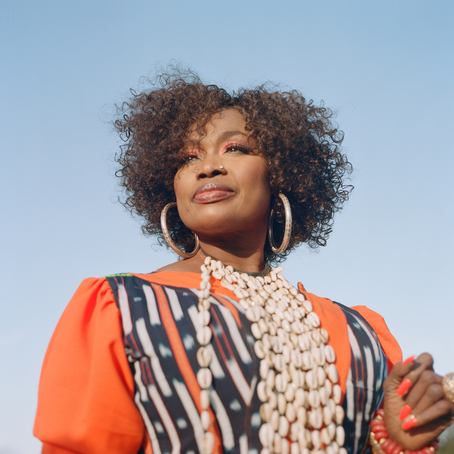What sort of sounds comes to mind when you think of Africa? Summertime is also concert season or festival season in almost every part of the world. The history of music is as old as humanity itself. Archaeologists have found primitive flutes made of bone and ivory dating back as far as 43,000 years, and it’s likely that many ancient musical styles have been preserved in oral traditions. Evolutionary scientists believe that a musical culture would have helped prehistoric human species to survive because music coordinates emotions, helps important messages to be communicated, motivates people to identify with a group, and also motivates individuals to support other group members.
We can agree that music is a universal language and has brought people together from all works of life. By helping mark the important moments in life, music helps to underscore the divine and eternal value of human life. Whether it is celebrating events, with an array of sounds announcing important ceremonies such as a marriage, a birth, or a ceremonial rite of passage. There are work songs that accompany digging, chopping, and harvesting. There are songs of praise and criticism, and songs recounting history by the griots (pronounced gree-oh), also known in some cultures as jeliw, who are the narrators of oral traditions. Born into their highly respected position, griots play an important role. As well as being storytellers, they are poets, historians, genealogists, and musicians. Griots often accompany their stories and songs with music from instruments like the kora (a stringed instrument similar to a harp) or balafon (a kind of xylophone).
African musical instruments are many and varied, and they reflect an impressive range in design, tuning, and functional and aesthetic use. Vignettes of the voice, drum, kora, balafon, xylophone, seperewa, mbira, flute, and horn are a few instruments commonly used. The African drum (called the heart of the community) is the most significant instrument as it reflects people’s moods and emotions, and its rhythm holds dancers together. From traditional repertoires from Ghana, including fontomfron, atumpan, and adowa. East African-influenced mix of Ethiopian jazz, Sudanese soul, and traditional secular music from Somalia and Eritrea. The lyrical melodies of the mbira from Southern Africa, the West African rhythms of the djembe and the kora, and the traditional music of the Tuareg people of the Sahara are just a few of the most well-known African musical traditions and so much more.
Today, Afrobeats is one of the most popular styles of African music. Afrobeats is a Nigerian music genre that combines West African music with American funk and jazz, elements of hip-hop, R&B, and traditional African rhythms. This rebirth and influence of African music in mainstream media and Western cultures should come as no surprise as the inventor and pioneer of Afrobeat, Fela Kuti once stated of his music, “The rhythm, the sounds, the tonality, the chord sequences, the individual effect of each instrument and each section of the band—I’m talking about a whole continent in my music.” Fela will be proud of the many Afrobeats artists from his country Nigeria and other countries in the continent.
We share with you a small sample of the many talented artists in African music, and there are many more that are worth discovering.

Living Legend, Youssou N’dour
- Youssou N’dour
Senegalese singer, songwriter, composer, occasional actor, businessman, and politician. In 2004, Rolling Stone magazine described him as, “perhaps the most famous singer alive” in Senegal and much of Africa. From April 2012 to September 2013, he was Senegal’s Minister of Tourism. Youssou started singing at age 14 and was touring The Gambia by age 17. He helped develop and popularize a Senegalese music style known in the Serer language as mbalax, which derives from the conservative Serer music tradition of “Njuup.” In 1979, he formed his own ensemble, the Étoile de Dakar. His early work with the group, in the Latin style, was popular all over Africa during that time. In the 1980s, he developed a unique sound with his ultimate group, Super Étoile de Dakar featuring Jimi Mbaye on guitar, bassist Habib Faye, and tama (talking drum) player Assane Thiam. By 1991, he had opened his own recording studio, and, by 1995, his own record label, Jololi. Folk Roots magazine described him as the African Artist of the Century. He toured internationally for thirty years. He won his first American Grammy Award (best contemporary world music album) for his CD Egypt in 2005. The New York Times described his voice as an “arresting tenor, a supple weapon deployed with prophetic authority.” What more can you add to that? Youssou is a living legend.

2. Hugh Masekela
A South African trumpeter, flugelhornist, cornetist, composer and singer. He has been described as “the father of South African jazz.” Maleeka was known for his jazz compositions and for writing well-known anti-apartheid songs such as “Soweto Blues” and “Bring Him Back Home.” He also had a number one US pop hit in 1968 with his version of “Grazing in the Grass.” Hugh pass away on January 23rd 2018 at the time this website was about to be launched, we thought we still highlight him.

3. Salif Keita
An afro-popsinger–songwriter from Mali. He is notable not only because of his reputation as the “Golden Voice of Africa” but also because his has albinism. This unique musical feel is reinforced by soulful pitches in the track “Stamina.” Keita’s album La Difference was produced around the end of 2009. The work is dedicated to the struggle of the world albino community (victims of human sacrifice), for which Keita has been crusading all his life. In one of the album’s tracks, the singer calls others to understand that “difference” does not mean “bad” and to show love and compassion towards albinos like everyone else: “I am black/ my skin is white/ so I am white and my blood is black [albino]/…I love that because it is a difference that’s beautiful”, “some of us are beautiful some are not/some are black some are white/all that difference was on purpose…for us to complete each other/let everyone get his love and dignity/the world will be beautiful.”
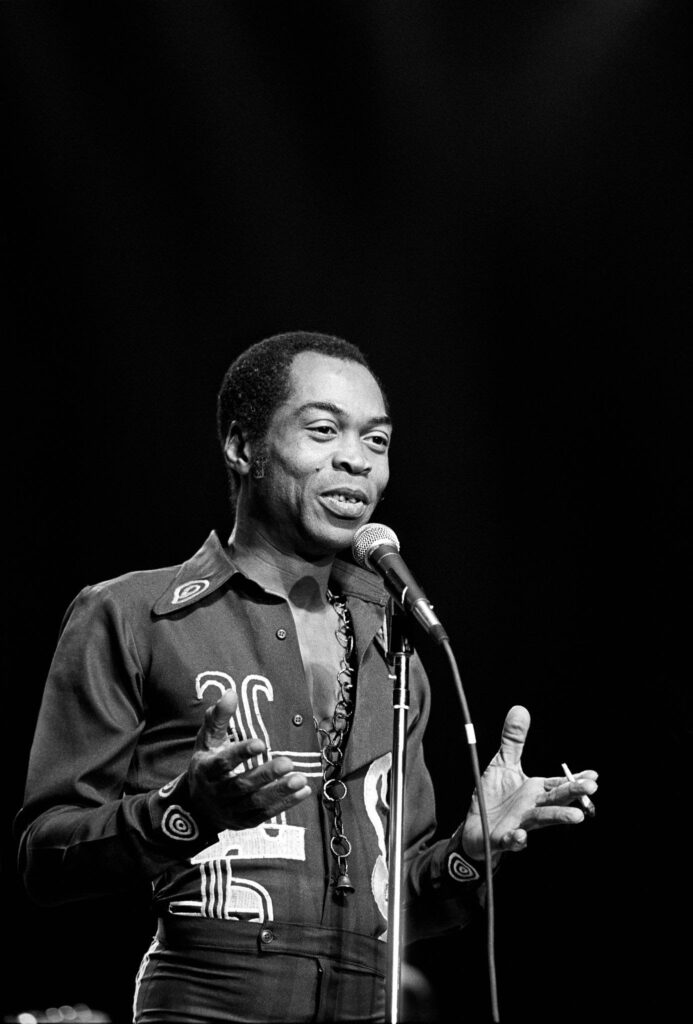
4. Fela Aníkúlápó Kuti
Nigerian musician, bandleader, composer, political activist, and Pan-Africanist. He is the innovator and pioneer of Afrobeat, a Nigerian music genre that combines West African music with American funk and jazz.
At a time when no one could dare criticize an African leader and one could end up being raided, hunted, and even killed, Fela used his music to denounce Nigeria’s corrupt leaders and pay tribute to ancient deities while onstage at his in-house nightclub. Following his 1969 tour of the United States, where he was influenced by the politics of Malcolm X, the Black Panthers, and other militants, Kuti’s music became increasingly politicized. He exhorted social change in such songs as “Zombie,” “Monkey Banana,” “Beasts of No Nation,” and “Upside Down.” Fela (as he was popularly known) and his band, which was known variously as the Nigeria 70, Africa 70, and later the Egypt 80, performed for packed houses at the early-morning concerts that they staged at Fela’s often-raided nightclub in Lagos.
As the firebrand singer, who gyrated over the keyboard as he sang in English and Yoruba, struck a chord among the unemployed, disadvantaged, and oppressed. His politically charged songs, which decried oppression by Nigeria’s military government, prompted authorities to routinely raid his club, looking for reasons to jail him. Near there he also set up a communal compound, which he proclaimed the independent Kalakuta Republic. Although, he was accused of indiscreet activities in this compound, however, music was non-stop. Kuti would play until dawn in a haze of igbo smoke and as he would argue, “music is supposed to have an effect,” Kuti once memorably said. “If you are playing music and people don’t feel something, you are doing shit. That’s what African music is about. When you hear something, you must move. I want to move people to dance, but also to think.”

5. Khaled
Khaled Hadj Ibrahim better known by his stage name Khaled, is an Algerian musician, singer and songwriter born in Oran, Algeria. He has become the most internationally famous Algerian singer in the Arab world and across many continents. His popularity has earned him the unofficial title “King of Raï.” His most famous songs are “Didi“, “Aïcha” and “C’est la vie” as well as “Alech Taadi”, which was prominently featured in the feature film The Fifth Element.
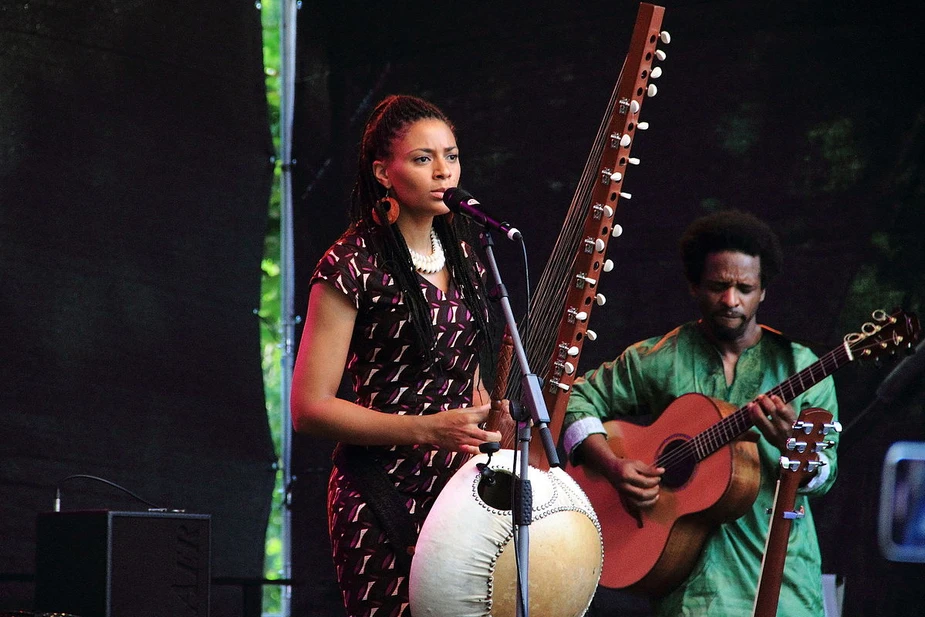
6. Sona Jobateh
A vocalist, multi-instrumentalist and composer from The Gambia and the UK. She was born into one of the five principal Kora-playing Griot families from West Africa – she is the first female professional kora player to come from a Griot family. She is the granddaughter of the Master Griot of his generation, Amadu Bansang Jobarteh.

7. Angélique Kidjo
A Grammy Award-winning Beninese singer-songwriter and activist, noted for her diverse musical influences and creative music videos. Time magazine has called her “Africa’s premier diva.” The BBC has included Kidjo in its list of the African continent’s 50 most iconic figures. her as one of its Top 100 Most Inspiring Women in the World.

8. Manu Dibango
A Cameroonian musician and song-writer who plays saxophone and vibraphone. He developed a musical style fusing jazz, funk, and traditional Cameroonian music. His father was a member of the Yabassi ethnic group, though his mother was a Duala. He is best known for his 1972 single, “Soul Makossa.” His song, “Reggae Makossa“, is featured on the soundtrack to the 2006 video game Scarface: The World Is Yours.

9. Ladysmith Black Mambazo
Ladysmith Black Mambazo are a South African male choral group singing in the vocal styles of isicathamiya and mbube. They rose to worldwide prominence as a result of singing with Paul Simon on his 1986 album Graceland, and have won multiple awards, including five Grammy Awards. They were formed by Joseph Shabalala in 1960 and later became one of South Africa’s most prolific recording artists, with their releases receiving gold and platinum disc honors. The group has since become a mobile academy, teaching people about South Africa and its culture. The first incarnation of Ladysmith Black Mambazo was “Ezimnyama” (“The Black Ones”), formed by Joseph Shabalala in December 1960. The members of the group were relatives (mostly brothers and cousins) of Shabalala, with many having sung with him while he was growing up on the farm where he was born.

10. Baaba Maal
Baaba Maal is a Senegalese singer and guitarist born in Podor, on the Senegal River. He is well-known in Africa and internationally and is one of Senegal’s most famous musicians. In addition to acoustic guitar, he also plays percussion. He has released several albums, both for independent and major labels. The singer and guitarist belong to the semi-nomadic Fulani people. He first left his homeland of Fouta, in northern Senegal to perform music hundreds of miles away as a teenage boy scout and he has been a wanderer ever since. “It’s part of my culture,” he says. “The songs travel from village to village, from country to country. It’s something natural to my tribe and this part of Africa.” In July 2003, he was made a UNDP Youth Emissary. Maal sings primarily in Pulaar and is the foremost promoter of the traditions of the Pulaar-speaking people, who live on either side of the Senegal River in the ancient Senegalese kingdom of Futa Tooro. Maal was expected to follow in his father’s profession and become a fisherman. However, under the influence of his lifelong friend and family gawlo, blind guitarist Mansour Seck, Maal devoted himself to learning music from his mother and his school’s headmaster. He went on to study music at the university in Dakar before leaving for postgraduate studies on a scholarship at Beaux-Arts in Paris. You may have already come across Maal’s music from the “Black Panther” films which comes from many elements, but a critical piece is surely its soaring soundtrack. Baaba Maal played an essential part in that.
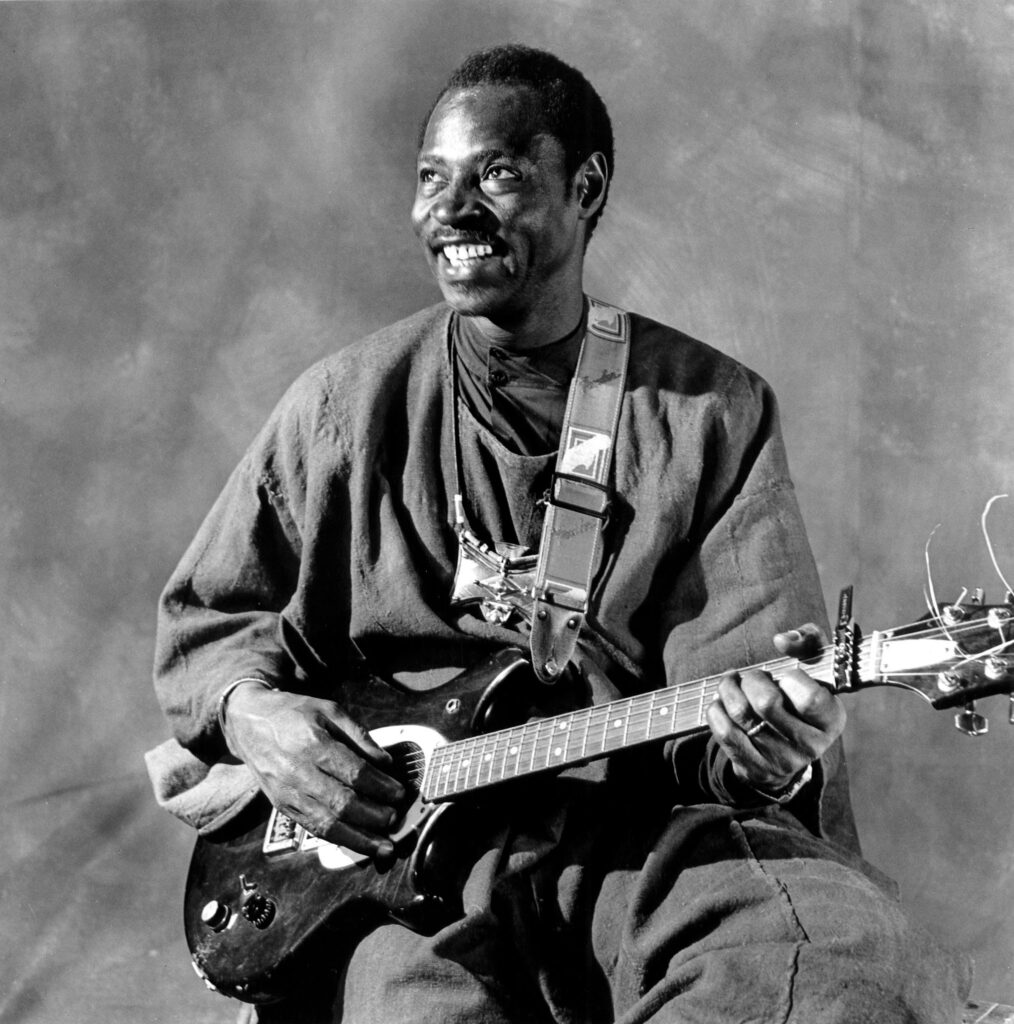
11. Ali Farka Touré
Ali Ibrahim “Ali Farka” Touré was a Malian singer and multi-instrumentalist, and one of the African continent’s most internationally renowned musicians. His music blends traditional Malian music and its derivative, African American blues, and is considered a pioneer of African desert blues. Touré was ranked number 76 on Rolling Stone‘s list of “The 100 Greatest Guitarists of All Time” and number 37 on Spin magazine‘s “100 Greatest Guitarists of All Time.”
12. Wizkid – Nigeria.
According to some reports in Nigeria, Wizkid has the largest fan club. Wizkid has an estimated net worth of $20 million dollars, and he is not backing down. He is a brand ambassador to many some Nigerian and International brands. Wizkid is the biggest Afrobeats Artist in the World and has won 68 Musical Awards, Wizkid has also been dubbed a music legend for taking after Fela Kuti and contributing immensely to the African sound’s global acceptance (Afrobeats).
As the biggest Afrobeats Artist in World, Wizkid has always been compared to his colleague, Davido – another big Nigerian music industry player. Wizkid also tops the top 10 best musicians in Nigeria and Africa with a total of 65 awards. Wizkid has recorded four studio albums with one EP: Superstar, Ayo, Sound from the other side (SFTOS), Made in Lagos, and Soundman Vol 1 (EP).
The Superstar was the debut album that introduced Wizkid to Nigeria; it was highly anticipated and later won the best album at Nigeria Entertainment Awards. Wizkid’s album, Sound from the other side (SFTOS), was also a success; the album made Wizkid the Ojuelegba coroner. SFTOS and Made in Lagos peaked at Number 2 (billboard chart) in US World Albums while gaining favorable positions in many other foreign Billboard charts.
In 2018, Wizkid became the first Afrobeats musician to make the 2018 Guinness World Records contribution to “One Dance” – Drake’s song. Wizkid is the most awarded African artist in BET history; in 2012 and 2017, Wizkid won the Best International Act category. In 2020 Wizkid was also among the recipients of the BET Her Award due to his collaboration with Beyonce in the Brown Skin Girl track.
13. Burna Boy – Nigeria.
Burna Boy is a Nigerian Afro-fusion singer. Afro-fusion slightly differs from Afrobeats; the former has a mix of the Afrobeats sound, dancehall, reggae, American rap, and R&B music genre. Burna Boy ranks as the 2nd best and the biggest Afrobeats Artist in the World with 36 awards to his name and is the contemporary Nigerian musician to win a Grammy award in recent times. Burna Boy has shattered many glass ceilings on his way to the top; Burna Boy won Best International Act during the 2019 B.E.T. Awards.
Burna Boy was also nominated for Best World Music Album at the 62nd Annual Grammy Awards following his 4th studio album, “The African Giant”. However, he didn’t win the award.

14. Black Coffee (Nkosinathi Maphumulo)
Going by the birth name Nkosinathi Maphumulo, Black Coffee is not only a legendary South African musician but also one of the prestigious musicians Africa presently boasts of. Prior to his return to KwaZulu-Natal –his place of birth –in order to make music his course of study, Black Coffee spent years in the Eastern Cape where he apparently grew up. Within and beyond South Africa, Black Coffee has made music the main factor behind his immense fortune and great wealth. Owing to this, he is considered as South Africa’s richest musician.

15. Koffi Olomide
Antoine Christophe Agbepa Mumba, known professionally as Koffi Olomide, is a Congolese soukus singer, dancer, producer, and composer. He has had several gold records in his career. He is the founder of the Quartier Latin International orchestra with many notable artists, including Fally Ipupa and Ferré Gola. Koffi’s talent could be compared to the once king of African rhumba.

16. Don Jazzy (Michael Collins Ajereh)
Don Jazzy is well-known as a singer and producer. Very impressively, he dominates Nigeria’s music industry as the country’s richest musician. Going by the birth name Michael Collins Ajereh, Don Jazzy has been making waves for long and prominently, he has featured with notable superstars within and outside Nigeria. Taking a look at his music career, Don Jazzy began music during his childhood and through his devotion to music, he eventually relocated to Britain where he proceeded with his music career.
17. Yemi Alade
Yemi Alade, is a Nigerian Afropop singer and songwriter. She gained prominence after winning the Peak Talent Show in 2009, and is best known for her hit single “Johnny.” She won the Peak Talent Show in 2009 after which she signed to Effyzzie Music Group. She won the MTV African Music Awards for Best Female in 2015 and 2016 consecutively and was nominated for Artiste of the Year in 2015, making her the first female to win the MAMAs for Best Female consecutively twice and nominated for Artiste of the Year. In 2015, Alade was the first African female to be nominated for the MTV Europe Music Awards (EMAs) and She was nominated for the BET Awards for Best International Act: Africa in 2015 and 2016. Alade is also applauded for her creative and overwhelming stage performances, fashion, and music videos
Many of Sangaré’s songs concern love and marriage, especially freedom of choice in marriage. Her 1989 album Moussoulou was an unprecedented West African hit. In 1995, she toured with Baaba Maal, Femi Kuti, and Boukman Eksperyans. Other albums include Ko Sira (1993), Worotan (1996), and a 2-CD compilation Oumou (2004), all released on World Circuit Records. Sangaré supports the cause of women throughout the world. She was named an ambassador of the FAO in 2003 and won the UNESCO Prize in 2001 and was made a Commander of the Order of Arts and Letters of France in 1998.
20. Fatoumata Diawara
Another beautiful example of a griot is Malian singer-songwriter Fatoumata Diawara. Her captivating stage presence and contemporary perspective make her one of Africa’s most vital international stars. Mali and currently residing in France. Her much-anticipated spring 2018 record follow-up on her critically acclaimed debut album Fatou (2011) on World Circuit/Nonesuch Records, which was the No.1 album on the world music charts for six months in 2011. Fatou has collaborated with a wide array of musicians including Damon Albarn, Toumani Diabaté, Herbie Hancock, and John Paul Jones, and she was featured in the recent documentary film, Mali Blues.



